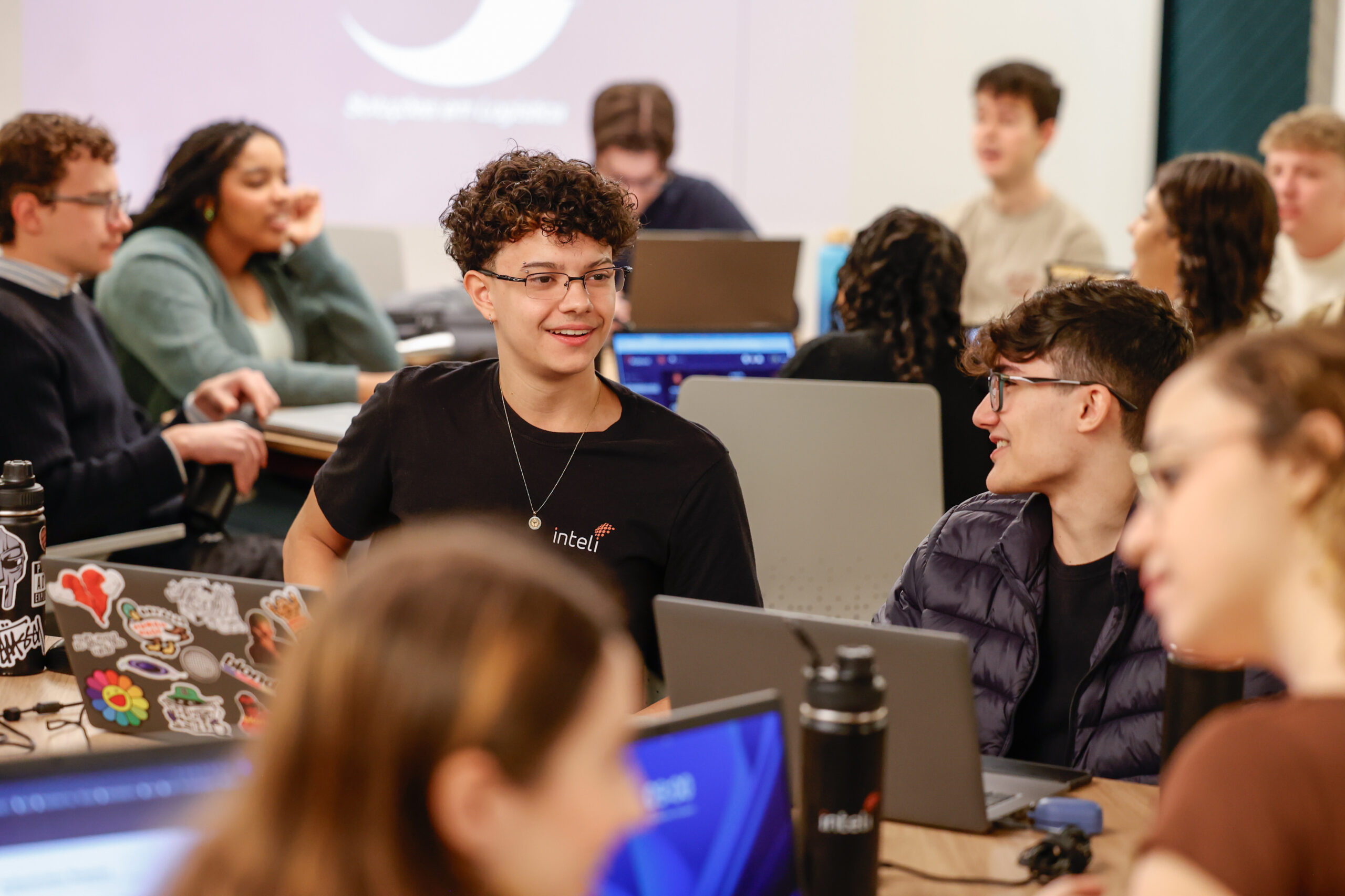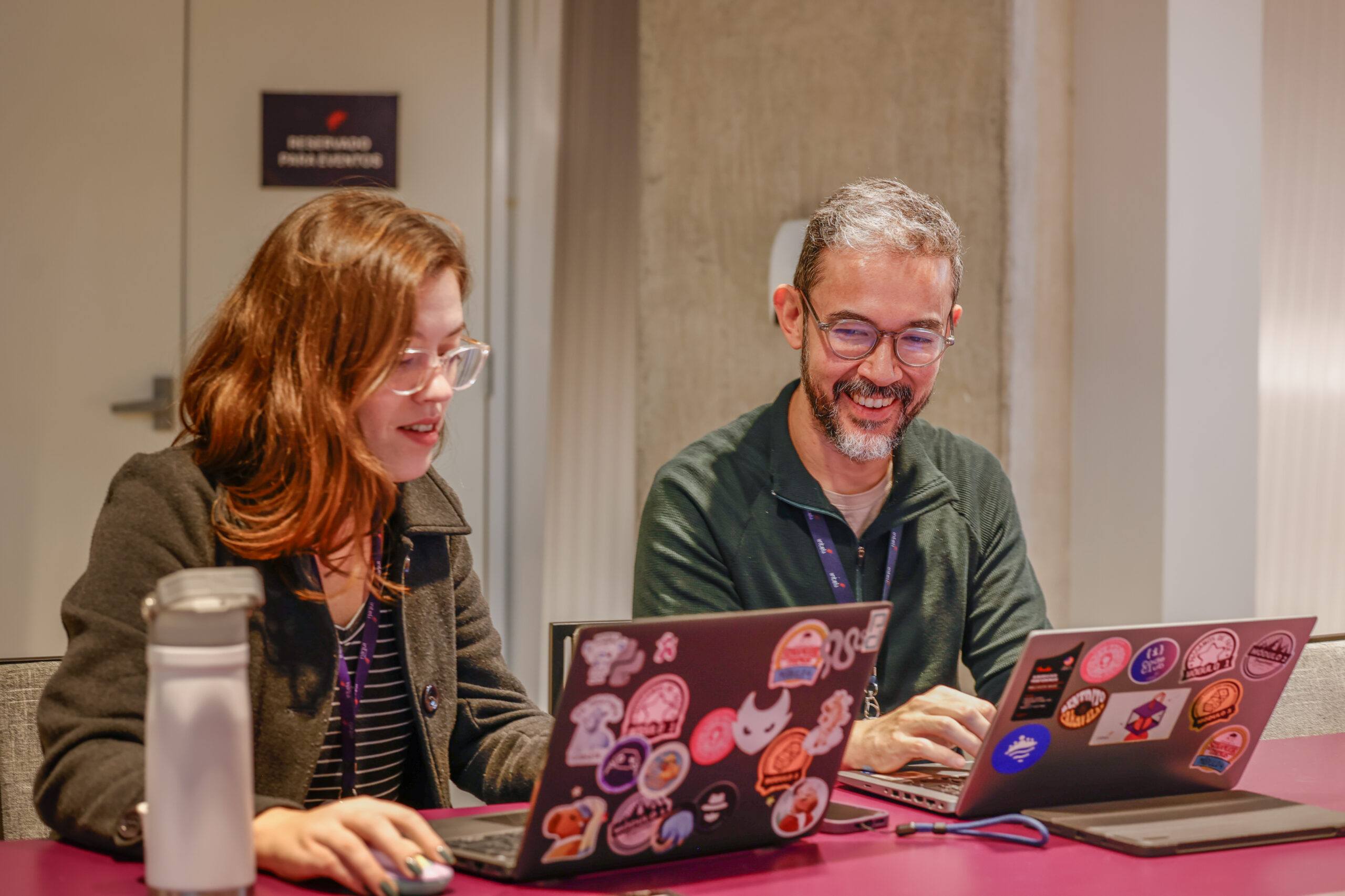If you love technology and believe you can be a leader of the future, Inteli is for you.
Inteli was born with a disruptive DNA: a technology college with a project-based methodology committed to the holistic training of its students. And in order to match students aligned with this proposal, the selection process consists of three stages capable of assessing the student in their various dimensions. Check them out!
Much more than a test
Ana Beatriz Garcia, Operations Director and one of the creators of Inteli's selection process, says that this has always been a project with the aim of being different from the traditional entrance exams at Brazilian universities. "A test alone wouldn't be enough to select our students, so we opted for a holistic assessment of the candidate, combining the assessment score with their school record, personal and community achievements and their future ambitions," she explains.
Ana was Inteli's first contributor and brought some of her personal experience to the design of the college selection process. As soon as she left high school, she went to study at the University of Virginia, in the United States, and went through the American application , in which the student's approval is based on a package that includes academic and personal performance throughout their school life. "When we do a personalized analysis and look closely at that person's story, it's possible to identify fundamental characteristics of a leader, such as resilience, focus and empathy," says Ana.
Stage Test
The Inteli assessment is divided into three strands: test, profile and project. The candidate must register, pay the fee and prepare for the theoretical test. There are 24 math and logical reasoning questions, 20 of which the student chooses to answer. "Right from the start, we create a relationship of trust with the student, believing that they won't seek outside help during the test," says Ana.
Here's the tip: you only have 90 minutes to answer all the questions, so any minute wasted could be precious in the end. Only candidates who reach the cut-off mark continue in the selection process. For those who want to prepare better for the exam stage, you can consult the version applied in the last process, or our lives on the Youtube channel.
The Inteli team has also prepared a bibliography where you can study the content covered in the exam. Mateus Rafael, a student on the Computer Science course, says that he created a spreadsheet to organize his studies of logic, calculations and text (for the profile axis). "So I studied during my lunch breaks at work and at least two hours after I got home," he adds.
Remember that candidates can choose to use their ENEM, SAT/ACT or IB - International Baccalaureate scores in the Exam stage. See the current Selection Process Notice.
Profile stage
The Profile stage requires two essays, and this is when the candidate has the opportunity to write about their dreams, achievements and life goals. And why is this important to Inteli? "In this individual analysis, we observed the young person's desire to learn. We believe that the desire to be part of change with technology as an ally is one of the great differentiators of the professional of the future," says Maira Habimorad, Inteli's CEO.
Ana Garcia recalls that what is at stake is understanding what that student has been able to achieve within their own reality. "We say around here that we're looking for the delta, in other words, where that person came from and what their balance of achievements was, which is a fair assessment considering the inequalities in our country. Resilience, impact, protagonism and ethics are values that are part of the Inteli culture and are taken into account in the evaluation process."
"In contrast to other conventional entrance exams, here I had the feeling that I was being assessed as a complete human being, since I was asked to write essays that showed my worldview, dreams, passions and qualities," says Pedro Munhoz de Souza Rivero, 18, a student on the Computer Science course.
The students' performance in the Maths and Science Olympiads is also important. Around 50% of the students approved for the first Inteli class have won a medal in one of these competitions. Extracurricular activities such as music, volunteer work or exchange programs also count for extra points.
Project Stage
The last phase of the selection process assesses critical thinking, communication and collaboration skills. The candidate can choose one of the three themes available and schedule the day and time of the dynamic, which includes the participation of up to five other candidates. For two hours, the group is challenged to work as a team and find a technological solution for the project.
"That was the coolest part for me. Everyone had very different ideas, but we talked a lot and reached a consensus. We exchanged knowledge all the time," recalls Carolina Fricks, 17, a student on the Software Engineering course.
For Allan dos Santos Casado, 17, the selection process turned out to be an opportunity for self-knowledge. "In the Project axis I challenged myself to work with a team made up of people I had no idea who they were, so I was able to analyze various points about how I behave in a team and deal with different people," says the Computer Science student.
Ana Garcia sees this stage as a turning point in the search for students with an Inteli profile. "In these first two months of classes we've already felt a very strong reflection of what they've already shown in the project phase. They know how to articulate and express their ideasclearly and objectively in their groups, always with very quick responses to challenges," says Ana.
Selection of successful applicants
The final ranking takes into account the sum of the scores for the three axes: Test, Profile and Project. The final ranking of successful applicants is published on the Inteli website.
Information about the Inteli Selection Process here




